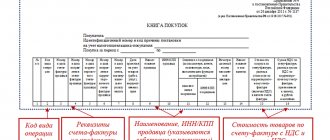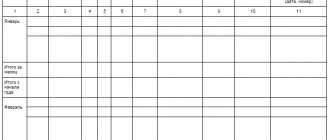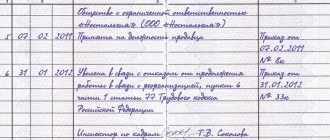What is DDU
An equity participation agreement (hereinafter referred to as EPP) is a type of agreement concluded between the shareholder and the developer. DDU is regulated by Federal Law 214 of the Civil Code of the Russian Federation “On participation in shared-equity construction of apartment buildings,” as well as a number of other regulatory documents.
The difference between buying an apartment with a mortgage is that the loan is secured by an equity participation agreement, and not by finished housing. As soon as the object is completed and put into operation, the apartment becomes at the disposal of the bank until the final payment of the borrowed funds. To protect itself from risks, the financial organization checks all participants in the share agreement. First, the borrower is checked for solvency. As soon as the bank approves a potential equity holder, the developer, the facility he is constructing and all the necessary documents are subject to verification.
To approve a mortgage under the DDU, the borrower must:
- have Russian citizenship;
- be over 21 years of age;
- be registered in the city where the creditor bank is located;
- have an impeccable credit history;
- work in one organization for more than six months with registration in accordance with the Labor Code of the Russian Federation.
Banks may have slight differences in the procedure for issuing a mortgage loan, but in most cases the conditions are approximately the same. The main criteria for obtaining a mortgage are:
- the size of the down payment is 10–20% of the total loan amount;
- The interest rate on the loan is most often 11.5–17% per annum;
- The mortgage repayment period varies between 20–30 years;
- The loan amount cannot be more than 85% of the cost of the apartment.
Each client’s application is considered individually, so the conditions for issuing a mortgage and interest rates differ depending on the characteristics of the borrower’s situation. Loan rates are affected by various nuances: the amount of the down payment, the repayment period of the mortgage, the size and availability of insurance, etc. Rates for housing under construction and an already completed property may also differ. On average the difference is about 5%.
[offerIp]
The legislative framework
The Federal Law “On participation in shared construction of apartment buildings and other real estate” regulates that when concluding such an agreement, the entity that buys an apartment with a mortgage acquires sole ownership of it and regulates public legal relations in the field of protecting the legitimate interests of participants in shared construction.
According to the criteria of the agreement, the developer undertakes the obligation, within the agreed period, to build an apartment building or other land plot, which is the subject of this transaction, and transfer it to the full and sole ownership of the participant in shared construction; under the terms of the agreement, he must pay the stipulated amount on time and in full. price.
Advantages and disadvantages of the decision to purchase an apartment using a mortgage
When purchasing an apartment under a DDU with a mortgage, the developer must be a legal entity. But both a legal entity and an individual can purchase housing from him. In this case, the buyer is an investor: he invests funds in construction in order to claim his share after the project is completed.
From the investor’s side, such an investment is quite profitable:
- In terms of price, purchasing an apartment in a building under construction is equivalent to purchasing a “killed” Khrushchev building, while new buildings, as a rule, have larger dimensions and are much more comfortable than the options presented on the secondary housing market.
- The apartment in the new building has no former owners who could have left thousands of debts on utility bills or even mortgaged the apartment.
- If real estate is purchased in order to resell it in the future, the investor is guaranteed to remain in the black, since after the house is put into operation, the cost of apartments in it will become much higher.
- There is no need to buy the first apartment you come across in a disadvantaged area; you can buy superior housing with pleasant neighbors and developed infrastructure.
However, when buying an apartment with a mortgage below the market value, the risks should also be taken into account:
- After concluding a contract of agreement, you can wait two years to move, so this option is not suitable for people who want to immediately move into a new apartment.
- In addition to the costs of purchasing a home, you also need to take into account the costs of furnishing the apartment (repairs, furniture, appliances).
Therefore, when you decide to purchase an apartment using a mortgage, you need to weigh the pros and cons in advance so as not to find yourself in a hopeless situation.
Pros and cons of an equity participation agreement
| The cost of real estate at the construction stage is much lower than the price of finished housing. | There is a risk that the developer will go bankrupt, freeze construction, and deceive shareholders. |
| You can save money for furniture, household appliances, and repairs while the house is being built. | Force majeure may occur, which will affect the delivery time of the project. |
| Apartments purchased under DDU are classified as primary real estate, and the mortgage rate for them is lower. | During construction you will have to spend money on renting housing if you don’t have your own. |
In addition to the DDU, a regular purchase and sale agreement and a housing cooperative are used to purchase real estate on the primary market. The purchase and sale agreement is concluded when the house has already been commissioned - you can immediately move into the apartment, register, and register ownership. Housing cooperative is a housing construction cooperative agreement. It is similar to the DDU, but formally you become a shareholder - you join a community of people who are going to build a house. However, there are no clear construction deadlines or penalties for increasing them.
Housing cooperative or preschool building: which is better - everyone decides for himself. When registering a DDU, buyers are more protected from unscrupulous companies, and housing cooperatives offer greater benefits compared to DDU.
Double sales
A significant advantage in the mechanism of shared construction under 214-FZ is the registration of a shared participation agreement in the management of Rosreestr in your region. The fact is that this registration also means checking the database of all registered objects in a given apartment building and excludes re-registration of the right of claim. Translated into human language, this eliminates fraud in the sale of one apartment to several people.
The fact is that in fact you do not immediately get the result of fulfilling your duties. The process of interaction with the developer looks like this:
- You clarify what a DDU is in the understanding of the selected developer, whether there are any pitfalls in the object
- You enter into a share participation agreement
- You pay the amount under the contract yourself or with the help of a mortgage loan
- Waiting for the house to be rented
This is where pitfalls creep in. After all, in fact, you gave money for something that does not yet exist in nature. And until the legislator introduced registration of contracts with government agencies, developers took advantage of the loophole and sold the same apartment to different people. Yes, this is fraud, but such schemes are still being tried in court.
The equity participation agreement of the 2021 model requires those entering into it to fully describe the distinctive features of the apartment, including the number of floors, the location of this apartment in the plan and project declaration, as well as its number. Double sales are virtually eliminated.
Penalty
Previously, contracts for the sale and purchase of apartments in new buildings did not provide for a clear algorithm for imposing a penalty upon termination of the contract. In the case of using an equity participation agreement, the problem is solved. The law clearly defines liability under the DDU and the scheme for calculating the penalty. Thus, a penalty can be recovered in the following cases:
- The deadline for handing over the new building or handing over the keys to the shareholder was violated by more than two months from the date specified in the share participation agreement
- There are significant shortcomings in the built house - for example, cracks in the wall
- The developer gives you an apartment with a smaller area than what is specified in the contract
All these points are also grounds for termination of the contract. That is, you can demand from the developer the entire amount of the contract plus a penalty, or just a penalty and your apartment. Calculating the amount of late fees is quite simple:
- We need a house delivery date specified in the tenancy agreement - we count the number of days that have passed from it
- We find out the key rate of the Central Bank of the Russian Federation on the official website of the department - it is 8.5%
- Next, we calculate using the formula: 1/150 X 8.5% X number of days X cost of the apartment
For example, for a day of delay with a contract value of 1 million rubles, the developer will have to pay you a little less than 600 rubles.
Buying an apartment with a mortgage on DDU: step-by-step instructions
When buying an apartment using a mortgage, the transaction scheme is quite simple. A potential shareholder is required to have a passport and money with him. If the loan has already been approved, you need to come to the developer’s office to formalize the contract. If a mortgage loan is issued simultaneously with the signing of an equity participation agreement, the transaction becomes tripartite and can take place at a bank branch. Thus, when purchasing an apartment using a DDU with a mortgage, the stages of the transaction are arranged in the following order:
- Selecting a financial institution . You are probably aware of the need to obtain a loan in advance, so you should choose a suitable bank long before registering for a loan. Often, banks cooperating with a developer offer reduced interest rates on the purchase of housing from their partner. You need to take into account the size of the loan rate, insurance, the amount of the required down payment and other conditions for obtaining a loan.
- Obtaining information about the developer. Find out whether the company's facilities were always delivered on time, and whether there were any legal proceedings with shareholders. Documentation for the house under construction is also subject to verification.
It is recommended that you familiarize yourself with the following acts:
- project declaration;
documents on the basis of which the company carries out its activities;
- confirmation of payment of the authorized capital;
- financial reports for the previous year;
- detailed information about the project (construction permit, land ownership certificate, etc.);
- certificate of state registration of the developer.
- Read the contract carefully . The content of the DDU of different companies is, as a rule, standard, but some developers may include their own special clauses in it. Read not only the main text, but also the additional agreement, especially pay attention to the small print. If there is any misunderstanding, contact a lawyer for help.
- Preparation of a complete package of documents . To register a DDU, you need to have your passport and your spouse’s consent to purchase real estate certified by a notary. When purchasing an apartment under a DDU with a mortgage for two spouses, both spouses must be present at the conclusion of the transaction, each with their own passport. To get a loan from a bank to purchase real estate, you need to fill out a borrower application form and attach a certificate of income to it.
- Drawing up a share participation agreement . The DDU is concluded in simple written form. Shareholders put their signatures, the developer – the organization’s seal and signature. If a third party (bank) is involved, the agreement indicates the details of the creditor with the seal and signature of the representative.
- Registration of preschool education in Rosreestr. The procedure usually takes five days. After receiving the appropriate mark, you can check the status of the contract on the Rosreestr website. Once registration is confirmed, payment can be made.
- Choosing a service company . After the project is handed over, the question will arise about choosing a company that will maintain the house (take out garbage, clean the entrances and local area, etc.). The decision is made at a general meeting of shareholders. As soon as permission to put the house into operation is received, a transfer and acceptance certificate is signed, then the documents are sent to Rosreestr to register ownership of the finished housing.
- Making a down payment . The required down payment is sent to the developer's account via bank transfer.
The company is required to have an authorized capital determined by the scale of construction and the relevant clauses in the current legislation. Reviews from shareholders who have already dealt with this developer can also help. They can be found on forums on the Internet.
The procedure for registering the purchase of an apartment under a shared participation agreement
Despite certain risks, the advantages of purchasing housing under the DDU prevail. This contributes to the growing popularity of shared construction and an increase in the number of transactions. Therefore, it will not be superfluous to know how the procedure for purchasing an apartment in a building under construction goes. Step-by-step instructions for purchasing an apartment under DDU:
- If you plan to raise borrowed funds to purchase a home under a DDU, you should choose in advance a lender who not only offers attractive mortgage lending conditions, but also has a good reputation. Preference should be given to leading banks that actively and quite successfully lend to shared construction.
- Next, you should find a reliable and trusted developer, whose reputation has been tested by time. You need to carefully check it on all points and collect as much information about it as possible.
- Choose a service company that will service the house after putting the house into operation. This decision is made at a general meeting of shareholders - future residents of the house.
- Conclusion of an agreement. It is imperative to ensure that the text of the document contains all the main points, does not have language that is unclear to the parties and does not have clauses that can be interpreted in different ways.
- Payment by the participant in shared construction. The size of the down payment and the schedule of regular payments must be provided for by the DDU.
- Home construction. At this stage, the developer fulfills his part of the obligations to the shareholders.
- Putting the house into operation. Transfer of apartments to participants in shared construction.
- Preparation of documentation by the developer.
- Registration of housing ownership.
Attention! The DDU must contain a description of the property (the apartment being purchased) in great detail, down to the expected number. The more detailed the housing is described, the lower the risk of fraud on the part of the developer.
Rules for drawing up a share participation agreement
The DDU does not require notarization; it is concluded in simple written form with subsequent registration in Rosreestr. The contract stipulates the obligations of the developer, namely: timely construction, delivery, commissioning and transfer of the designated property to the shareholder. The second party undertakes to pay in full the amount specified in the contract, as well as to sign the transfer and acceptance certificate if the apartment fully complies with quality standards.
The DDU must include:
- subject of the contract (housing characteristics);
- cost of the apartment;
- terms of construction and commissioning of the facility;
- the period during which the company guarantees to fulfill its obligations;
- ways to ensure warranty obligations.
In addition, there must be details of the parties, documents confirming the right to carry out construction, the cost of one square meter of housing and the final price of the apartment, grounds for revising the cost, rights and obligations of both parties, liability in case of violation of the terms of the contract by the parties. If there are no essential conditions, registration of the agreement will be refused. The conditions of the DDU are verified in accordance with the project declaration. Registration with Rosreestr is intended to protect the shareholder, confirm his ownership, and also eliminate the possibility of double sales.
The additional agreement to the DDU may contain some conditions that are not specified in the main agreement; this is also worth paying attention to. Often they talk about postponing the delivery date of the house due to an increase in the construction period. Having become familiar with such conditions, the shareholder has the right to refuse to enter into an agreement. In addition, according to the law, he can challenge the delay in construction work in court. Additional conditions include:
- the right to assign claims under the DDU;
- the possibility of unilateral termination of the contract;
- clearly defined deadlines for delivery and acceptance of the object;
- conflict resolution regulations;
- terms of termination of the agreement.
The presence of a notary is also not required to sign additional conditions. They have the same meaning as the agreement itself, so before signing an additional agreement, consult with a lawyer or other shareholders.
Equity agreement for the purchase of an apartment can be found here: Purchase of an apartment using a DDU with a mortgage form
Possible risks of purchasing an apartment under a shared participation agreement
When deciding to take such an important step as signing the agreement, the shareholder must soberly assess all possible risks. They are as follows:
- The agreement is drawn up by the construction company’s lawyers, so the agreement may contain ambiguous clauses that increase the risks of shareholders and will allow the developer to avoid liability if something happens. It is necessary that the text of the document be carefully studied by a legally savvy person.
- If an agreement contains clauses that contradict the norms of Russian legislation, it may be declared void and invalid. This is also important to consider and be sure to check before signing. If the court finds the contract void, it will be very difficult for the shareholder to recover his investment in construction and prove the guilt of the developer.
- The DDU may contain information about the automatic rise in price of square meters in the event of inflation. Usually this clause is written in small print so that it does not attract unnecessary attention and shareholders do not have questions about this.
- A construction company may use raised funds for other purposes, which is a gross violation not only of the terms of the agreement, but also of the legislation of the Russian Federation. Deceived participants in shared-equity construction, having irrefutable evidence of this fact, can safely go to court to recover damages from the unscrupulous developer. The court will be on their side.
- After signing the transfer deed and transferring the housing to the shareholder, he no longer has the right to make any claims to the construction company regarding the quality of the work performed. His signature under the act of acceptance and transfer of the object indicates that the participant in shared construction carefully examined the home, checked the functioning of all communications and engineering systems, and the results were completely satisfactory to him.
- The development company may go bankrupt, thereby losing the opportunity to fulfill its obligations to shareholders. In this case, participants in shared construction will face a painful and protracted legal process.
Possible risks when buying an apartment under DDU
When buying an apartment with a mortgage below the market value, risks are inevitable. They may relate to the quality of work performed, registration of ownership, postponement of the date of delivery of the object, the financial side and much more.
- Increased construction period . Perhaps the most common problem in the construction of any real estate project. In the best case, the construction will last for several months, in the worst case, it will close completely. The most common reasons for missing deadlines are:
- The developer lacks sufficient financial resources . No money - no materials and means to pay workers. Many people hope to use the money from selling apartments, but it turns out to be not enough.
- Directing investors' financial investments to complete another construction project.
- Failure to fulfill obligations on the part of contractors: late delivery or lack of necessary construction materials . To avoid such situations, at the stage of concluding the contract, it is necessary to discuss in which quarter the construction will be completed and the house will be put into operation. Then, in the event of an increase in the construction period or its termination, the shareholder has the right to demand to pay a penalty or terminate the contract. If the commissioning of the house is delayed, the developer is in any case obliged to pay a penalty.
- Replacement of information specified in the project declaration. The project declaration is the main document during the construction of a real estate property. The first part of the declaration contains information about the developer company, and the second part contains the construction project. This document is in the public domain: it is either published in the media or presented at the first request of a person who wishes to familiarize himself with it.
The shareholder has the right to terminate the DDU and return the funds if the project declaration has undergone the following changes:
- making significant adjustments to the house design during the construction stage;
enlargement or reduction of one or more objects;
- unauthorized decision-making regarding non-residential premises, common property of shareholders, etc.
- Double sale of an apartment.This concept refers to the purchase of the same living space by two or more shareholders. The likelihood of such a situation occurring is due to the following factors:
- untimely exchange of information about sold apartments between the developer and the real estate agency;
preliminary preschool education;
- transfer of ownership to a third party;
- purchasing an apartment from a contractor;
- error in documentation (human error cannot be ruled out).
Naturally, the developer will try to delay the return of money as long as possible, so you should not expect a quick refund in the event of termination of the equity participation agreement.
In addition to the above situations, risks also include the developer’s requirement to transfer additional funds to carry out work not specified in the contract. This could be landscaping the territory, installing communications, or paying for the rent of a plot of land. Sometimes the area of a facility under construction increases during the construction process, which, in turn, entails additional costs.
To avoid such requirements, the contract must contain a condition under which the cost per square meter remains unchanged regardless of the circumstances.
To protect yourself when purchasing an apartment under a DDU with a mortgage from a contractor, the buyer should receive from him an act confirming the fulfillment of obligations to the developer.
Professional lawyers for shared construction
„
An agreement on shared participation in construction (hereinafter referred to as DDU) was concluded between me and the developer. According to the subject of the DDU, an apartment is purchased with the number of rooms 1, design area 68.9 m2. Work on the creation of a shared construction facility is prescribed in Appendix No. 2 to the DDU. Here are the main excerpts: — Construction: Monolithic reinforced concrete frame and walls made of small-piece stone materials (cellular concrete); — Ceilings (floors) — Monolithic reinforced concrete slab; - There are no partitions! At the same time, the object is transferred to the participant in shared construction with the completion of finishing works specified in Appendix No. 3 to the Agreement, including: “Walls: - Interior partitions are made of masonry block elements; — Construction of a box for the installation of holes for the passage of hot water supply, hot water supply, sewerage pipes...” The price according to the DDU is set for the object as a whole, is final and cannot be changed. Mutual settlements under the contract in case of deviation of the actual area from the design area are not provided for. Currently, the Developer has sent an additional agreement (and offers to sign it). The covering letter reads as follows: “A contract for participation in shared construction has been concluded between you and the Developer, according to which your property consists of one room (clause 3.2 of the DDU), there are no interior partitions. The developer carries out finishing work in the shared construction project, including work on installing interior partitions (Appendix No. 3 to the DDU) in places indicated by dotted lines on the diagram of the shared construction project (Appendix No. 1 to the DDU). To reflect an object with erected interior partitions in the Unified State Register of Real Estate, you need to sign an additional agreement to the DDU specifying the number of rooms and the layout of the object after finishing work. This will make it possible, during the upcoming commissioning of the 1st stage of the residential complex, to put the premises with erected partitions into cadastral registration. Cadastral work is carried out at the expense of the developer. Unfortunately, without a formalized additional agreement, it is not possible to register the interior partitions completed during the finishing work for cadastral registration, taking into account the number of rooms, simultaneously with the commissioning of the residential complex.” Preamble from add. according to: “In connection with the start of the finishing work provided for in Appendix No. 3 to the Agreement, the increase in the number of rooms of the Shared Construction Project and the corresponding clarification of the project area of the Shared Construction Project, the parties agreed to make the following changes to the Agreement: Number of rooms - 3 Design area of the Project , sq.m. - 64.6." That is, the number of rooms increases while the project area decreases. According to the Developer, the indicated area is the result of measurements made by a cadastral engineer and a document has even been provided confirming this. The developer says that if this additional agreement is not signed, the shared construction project will be registered in the cadastral register as a one-room apartment with the same area as in the residential building (68.9 m2) and I will have to legitimize the redevelopment myself. Currently, the developer (more precisely, another legal entity) with whom an agency agreement was concluded when purchasing a property is required to legitimize the redevelopment. According to the project declaration, all apartments are one-room, open plan. Questions: 1) What are the chances, if I do not sign the additional agreement, to sue the developer for compensation for reducing the area of the apartment by 4.3 m2? 2) Will the Developer really be able to register a 3-room apartment as a 1-room apartment in the cadastral register if I do not sign an additional agreement? 3) To what extent is it legal for the Developer to include in the area sold to me the niches occupied by communications (common building risers), around which he erected boxes for communications and now refers to the fact that they were originally included in the area sold to me according to the apartment’s construction spot, and the construction of boxes is included in list of works for finishing the facility?
“
Sergey27.10.2019 22:44
How to protect yourself from problems when buying an apartment using a DDU with a mortgage
It is necessary to take into account many nuances of purchasing housing with a mortgage. The main point is that the apartment serves as collateral for loan repayment, that is, it remains pledged to the bank until the mortgage is paid in full. An encumbrance is placed on the housing, implying the impossibility of performing any registration actions.
It is mandatory to take out liability insurance. Shared construction of a property always involves risks. A variety of circumstances can affect the completion of construction and commissioning of a house. Given the unstable economic situation, the possibility of bankruptcy of the developer cannot be ruled out. The company that buys out the liability may not be interested in the immediate delivery of the property. If an accurate geological examination was not carried out at the preparation stage, the house may simply collapse due to soil instability and incorrect foundation laying.
Each of these risks is insured in favor of the credit institution. Without insurance, the equity holder finds himself in a very precarious position, risking losing the apartment, but maintaining the obligation to repay the mortgage. It would also be a good idea to take out life and capacity insurance, as well as a document confirming ownership. In addition, banks are willing to reduce the interest rate for citizens who have purchased a full insurance package.
Tax deduction when buying an apartment with a preschool education
There are no restrictions on apartments under construction. They can also return part of the funds paid in the form of a tax deduction.
To return the tax deduction, you need to officially pay personal income tax to the country’s budget for the last 3 years.
A tax deduction is actually a reduction in the tax base for personal income tax by the amount of the purchase of an apartment, and the tax refund itself is part of the amount of tax deductions previously paid by them.
To apply for a tax deduction, you must have a housing acceptance certificate in hand.
The tax deduction is limited to 2 million rubles. Of this money, you can return 13% - no more than 260 thousand rubles. Refunds do not occur at once.
In a year you can only return no more than the amount that was paid in taxes. The rest can be returned in subsequent reporting periods.
If a citizen bought an apartment with a mortgage, he will have the right to return part of the interest, in particular:
- Refund only the interest already paid, excluding those that remain to be paid according to the payment schedule.
- The maximum return from the budget on interest is 390 thousand rubles.
To get interest back, you will have to request a certificate from the bank every year about the amount of interest paid on the mortgage.
To receive a deduction, you can contact the tax service or ask your employer to stop withholding personal income tax until the deduction is paid in full.
To apply for a deduction, you need to provide a passport, documents for the apartment, receipts for paying for the apartment, a declaration, a 2-NDFL certificate and the application itself of a certain form . The tax service may consider the application within 3 months.
Purchasing an apartment under an equity participation agreement is a profitable option for investing your own or borrowed funds.
Despite the high risks of freezing or stopping construction, government support for shareholders today allows them not to risk their own money and interact only with accredited and reliable developers.
The subtleties of buying an apartment under the DDU with a mortgage before marriage
So, you have decided to buy an apartment under the DDU, the mortgage does not scare you, and you are optimistic about the future. Remember that, by law, property acquired by spouses during marriage is the property of both and must be divided in half upon divorce. With real estate purchased under a regular transaction, everything is simple: the housing was purchased during marriage, which means that upon its dissolution it is divided between the two spouses. In the case of preschool education, everything is different.
By signing an equity participation agreement, the buyer invests funds in an object that currently exists only in the project, thus, the apartment cannot yet be classified as real property. After the house is put into operation, the housing becomes classified as real estate, as well as the property of the shareholder. Several years pass between the conclusion of the DDU and the delivery of the property, during which the shareholder can marry, divorce and marry again, which means that the ownership of the apartment will change in accordance with the situation.
What is fundamental in this matter is only the fact of ownership of the funds invested in shared construction. Let's look at several cases of purchasing an apartment under a DDU with a mortgage with the participation of spouses.
- Case No. 1. A citizen registers a DDU in his name and pays for the apartment with his own funds. During construction, he gets married, and the completed object is registered in his name after the marriage. After several years of marriage, the couple decide to divorce. In this case, there will be no problems with determining the owner of the property, since the apartment was purchased before the wedding with the money of one of the spouses. The fact that she transferred ownership later does not play any role here; after the divorce, the property will remain with the original buyer.
- Case No. 2. The signing of a share participation agreement was carried out by one of the spouses before marriage. Borrowed funds from a credit institution were used for the purchase. If after the wedding the spouses paid off the mortgage jointly, upon divorce the property will be divided equally. The division of the apartment in a situation where the spouse in whose name the mortgage is issued has partially repaid the loan becomes somewhat more complicated. The size of each spouse’s share is determined by the amount taken from the family budget to pay off the mortgage. Large amounts guarantee the second spouse the right to receive a share commensurate with the funds paid. For small investments on the part of the second spouse, the court may oblige the first to reimburse the funds spent, leaving him with the right to undivided ownership of the apartment.
What is a DDU agreement when buying an apartment?
Often, purchasing real estate and participating in the construction of an apartment building are understood as one and the same way of acquiring real estate ownership.
For a more complete understanding of the differences between purchase and sale agreements and equity participation agreements, a comparative table is provided below.
| Basis for comparison | Agreement on shared participation in construction | Contract of sale |
| Legal regulation | Federal Law of December 30, 2004 No. 214-FZ “On participation in shared-equity construction of apartment buildings...”. | §1, §7 ch. 30 Civil Code of the Russian Federation. |
| Contract form | Simple written (clause 3 of article 4 of Federal Law-214) | Simple written (Article 550 of the Civil Code of the Russian Federation) |
| Parties (subjects) of the agreement | Developer, participant in shared construction (shareholder). | Seller (owner), buyer. |
| Subject of the agreement | Construction by the developer of an apartment building, transfer of the object after its commissioning to the shareholder. Payment of the price stipulated by the contract by the participant in shared construction, his actions to accept the object (Clause 1, Article 4 of Federal Law-214). | Paid transfer by the seller of real estate into the ownership of the buyer (Article 549 of the Civil Code of the Russian Federation). |
| Essential conditions | Subject of the agreement, term of transfer of the object, price (procedure and deadline for payment), warranty period (provided for in Article 7 of Federal Law-214), methods of ensuring the fulfillment by the developer of obligations under the contract (clause 4 of Article 4 of Federal Law-214). | Price, subject of the agreement, list of persons retaining the right to use residential premises, state registration of the transfer of ownership (Article 555, Article 554, Article 558 of the Civil Code of the Russian Federation). |
| Rights and obligations of the parties | The list is wider than under the purchase and sale agreement, since the developer has an obligation to ensure construction and other obligations arising from this. | The list is wide. |
| Transfer and Acceptance Certificate | Mandatory (Clause 1, Article 8 of Federal Law-214). | Mandatory (Article 556 of the Civil Code of the Russian Federation). |
| Liability for non-fulfillment or improper fulfillment of obligations under the contract | Provided for (clause 2 of article 6, article 10 of Federal Law-214). | Provided (forfeits, penalties, fines). |
| State registration of transfer of ownership | Subject to mandatory requirements (clause 3 of article 4, article 16 of Federal Law-214; article 551 of the Civil Code of the Russian Federation). Carried out in the manner prescribed by the Federal Law of July 21, 1997 No. 122-FZ “On state registration of rights to real estate and transactions with it” by Rosreestr. When registering a residential building, permission to put an apartment building into operation (transferred by the developer to the registration authority independently). | |
| Taxation | Developer services are not taxed (clause 23.1, clause 3, article 149 of the Tax Code of the Russian Federation). | When selling an apartment that has been owned for more than 3 years, it is not subject to it (clause 17.1, clause 1, article 217 of the Tax Code of the Russian Federation). Income from the sale of an apartment is subject to taxation (clause 5, clause 1, article 208 of the Tax Code of the Russian Federation). |
Purchasing an apartment using a mortgage with maternity capital
Is it permissible to use maternity capital funds to participate in shared construction? To date, there are no restrictions on this type of use of the certificate.
Purchasing an apartment under a DDU with a mortgage using maternal capital is possible subject to several conditions:
- At the time of purchasing an apartment, the child after whose birth the parents received the certificate must be three years old. Otherwise, maternity capital cannot be taken into account when purchasing for cash.
- Purchasing an apartment under a DDU using maternity capital funds is only permissible if you obtain a mortgage.
To summarize, we can say that the use of a maternity capital certificate for the purchase of housing under the DDU before the child reaches three years of age is possible only when applying for a mortgage loan.
Step-by-step instructions for purchasing a home under DDU
First you need to analyze all the advantages of purchasing from a developer , which can be expressed in a significant reduction in the price of the premises. Also, weigh the degree of acceptable risks. If the buyer’s confidence that he wants to participate in shared construction is unshakable, he can proceed directly to its organization.
Preparatory stage
The main thing is to take your time and not make rash decisions under the influence of advertising sites and company marketing plans. You need to proceed from your own property interests. Sometimes it is advisable to contact an expert in the field of real estate, who can be:
- practicing lawyer;
- a realtor working in a company or an individual entrepreneur.
Such specialists will be able not only to advise on the choice of a developer company, but also to provide the required services when concluding a contract. Persons who are able to navigate legal issues can act independently.
Choosing a company
The choice of the company that is best to contact should be preceded by an analysis of all companies operating in the construction services market in the region where you plan to purchase an apartment. It is carried out by comparing offers and the price range of finished products.
In addition, each company gives basic requirements for the conditions that an applicant for participation in shared construction must fulfill. Sometimes the nuances accompanying a commercial offer are a decisive factor in the choice.
For the most part, people who are looking for a partner for equity participation in construction focus on a certain category of housing, which can be budget, or, on the contrary, elite. At this stage you need:
- Determine the category of housing being purchased.
- Consider all proposals for participation in shared construction.
- From these proposals, select the preferred developments for the area.
- Make a selection based on the technical characteristics of the proposed premises.
From the selected proposals, make a list of construction companies and their managers for further verification.
Studying the object
The quality and legal capacity of subsequent equity participation depends on the information received. Therefore, the following procedure is necessary:
- Go to the company’s advertising website and carefully study the developer’s commercial offer.
- Compare it with similar offers, calculate the profitability of purchasing housing from each developer.
- Study the plan of the building under construction presented on the site. Using subjective criteria, evaluate the attractiveness of using a particular proposed premises.
- From the remaining options, create a list of companies.
If the locality does not have a choice due to the lack of competition in the real estate construction market, an analysis and verification of the developer will be required in order to confidently continue the execution of the contract, or to prefer purchasing an apartment on the secondary housing market.
From the compiled list, it is necessary first of all to focus on the maximum guarantee of completion of the construction of the building, therefore further verification includes determining the business qualities of the construction manager. Need to:
- Enter the last name, first name and patronymic of the head of the company in the search engine.
- Carefully study his professional path, identify all the “dark spots” that raise doubts about his competence. If under his leadership companies went bankrupt, one should doubt his integrity or professionalism.
If everything seems fine, copy the company’s contact information. The control criterion for the integrity of the company will be reviews on forums left in those localities where the companies headed by this official operated.
IMPORTANT: The package of documentation presented on the official website confirming receipt of a construction permit and bank guarantees gives the developer an advantage over those companies that do not provide such information.
Next, a personal visit to the company consultant is required. If possible, it is best to contact several companies personally or with a specialist accompanying the transaction.
Where to go to conclude a deal?
The contact information obtained on the official or advertising website of the developer will allow you to contact the company’s office. You must schedule a visit by phone or email. If a decision was previously made to engage a competent specialist to accompany the transaction, then he should be invited at the time appointed for consultation.
At the office, the developer must provide interested parties with a package of documents:
- license to permit the designated activity;
- documentation permitting construction, technical and cadastral documentation;
- documentation for renting or purchasing a plot of land under the planned building;
- development project, with floor plan and characteristics of each available apartment offered to clients.
Below in the photo you can see an example of what a license for construction activities looks like:
You can see what a certificate confirming the fact of ownership of a plot intended for the construction of apartment buildings might look like in the photo:
Information about the terms of the transaction and a sample of a standard DDU agreement to be concluded by the parties should also be provided here. The submitted sample must be carefully studied. The main thing is to pay attention to the type of contract that is offered to the client, as well as its essential provisions, clauses and subclauses.
Latest changes in legislation regarding shared construction
Last year, Federal Law No. 218-FZ “On a public law company to protect the rights of citizens participating in shared construction in the event of the insolvency (bankruptcy) of developers and on introducing amendments to certain legislative acts of the Russian Federation” was adopted.
This law has tightened the conditions for shared construction. The developer company undergoes a thorough check to ensure compliance with the stated requirements. In particular, she must have experience in the construction of apartment buildings, a certain authorized capital, a complete list of necessary documents, etc.
The changes took effect in July 2021. The updated requirements have made life much more difficult for developers. It is possible that many will not be able to fulfill all the conditions and will be forced to cease their activities. It is now difficult to predict whether the changes will benefit shareholders by protecting them, or, on the contrary, will only worsen the economic situation by increasing the cost of apartments.
Income tax
For profit tax purposes, property received by the taxpayer as part of targeted financing is not taken into account (subclause 14, clause 1, article 251 of the Tax Code of the Russian Federation). So, in particular, funds of targeted financing include property in the form of funds of shareholders and (or) investors accumulated on the accounts of the developer organization (paragraph thirteen, subclause 14, clause 1, article 251 of the Tax Code of the Russian Federation).
When using escrow accounts in shared construction, the funds of shareholders are accumulated in special accounts of shareholders in the bank (Parts 1, 2, Article 15.5 of the Federal Law of December 30, 2004 No. 214-FZ “On participation in shared construction of apartment buildings and other real estate and on introducing amendments to certain legislative acts of the Russian Federation”, hereinafter referred to as Law No. 214-FZ, Article 860.7 of the Civil Code of the Russian Federation). In this regard, based on a direct reading of paragraph thirteen sub. 14 clause 1 art. 251 of the Tax Code of the Russian Federation, we believe that funds of shareholders held in an authorized bank in escrow accounts (not in the accounts of the developer) cannot be recognized for profit tax purposes as funds of targeted financing . In our opinion, this argument is confirmed by the fact that when raising funds from shareholders using escrow accounts, the requirements provided for in Art. 18–18.2 of Law No. 214-FZ, do not apply (Part 4 of Article 15.4 of Law No. 214-FZ).
Other rules that allow not to include in income funds received as payment for the cost of constructed objects under a shared construction agreement, the provisions of Art. 251 of the Tax Code of the Russian Federation do not contain. Since there are special rules for accounting for income and expenses for developers Ch. 25 of the Tax Code of the Russian Federation is not established, then the developer’s income and expenses must be taken into account in the generally established manner.
Sales proceeds are determined based on all receipts associated with payments for goods sold (work, services) or property rights expressed in cash and (or) in kind (clause 2 of Article 249 of the Tax Code of the Russian Federation). According to Part 1 of Art. 5 of Law No. 214-FZ, the cost of developer services is not included in the contract price from July 30, 2021. In this regard, we believe that the developer’s income should be determined based on the cost of the construction project, defined in the contract (excluding VAT), on the date of transfer of the finished construction project to the shareholder under the acceptance certificate (clause 1 of article 248, clause 3 of article 271 of the Tax Code of the Russian Federation). At the same time, the expenses take into account the tax cost of the construction project, formed from the direct expenses of the developer (Articles 318, 319 of the Tax Code of the Russian Federation). The provisions of paragraph 17 of Art. 270 of the Tax Code of the Russian Federation do not apply in this case.









